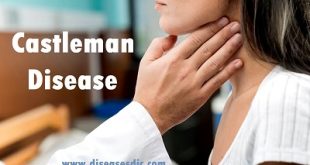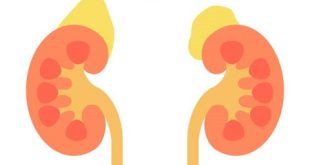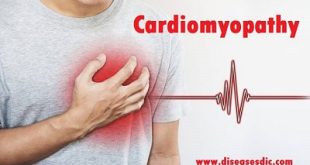Definition
Chlamydia is a common sexually transmitted disease. Chlamydial infection, caused by Chlamydia trachomatis, it can infect both men and women. Women can get chlamydia in the cervix, rectum, or throat. Men can get chlamydia in the urethra (inside the penis), rectum, or throat.
Microscopic image of Chlamydia trachomatis in a cell
Life cycle of Chlamydia trachomatis
History
Chlamydia trachomatis was first discovered in 1907 by Stanislaus von Prowazek in Berlin. The genus part of the name, Chlalmydia, comes from the Greek word chlamys, which means cloak and the species part of the name, trachomatis is also Greek and means rough or harsh. This name is perfectly associated with the actions of this disease.
Epidemiology in world wide
The World Health Organization (WHO) estimates that in 2012, 131 million new cases occurred among adults and adolescents aged 15–49 years worldwide, with a global incidence rate of 38 per 1000 females and 33 cases of chlamydia result in an overall prevalence of 4.2% for females and 2.7% for males, with the highest prevalence in the WHO Region of the Americas and the WHO Western Pacific Region. In many countries, the incidence of chlamydia is highest among adolescent girls aged 15–19 years, followed by young women aged 20-24 years.
What causes chlamydia?
- It’s caused by bacteria (tiny, living cells) called Chlamydia trachomatis.
- They can live in the uterus (womb), vagina and cervix (entrance to the womb), the urethra (tube where urine comes out), the rectum (back passage), and sometimes the throat and eyes.
- Anyone who’s sexually active can get it and pass it on. You don’t need to have lots of sexual partners.
Transmission of Chlamydia trachomatis
Chlamydia is usually passed from one person to another through sexual contact. You can get the infection if you come into contact with the semen (cum or pre-cum) or vaginal fluids of someone who has chlamydia. Chlamydia is most commonly spread through:
- Unprotected (without a condom) vaginal or anal sex
- Sharing sex toys that aren’t washed or covered with a new condom each time they’re used. It can be spread by giving or receiving oral sex (going down, giving head) with someone who has chlamydia. The risk can be lowered by using a condom or dam (latex or soft Plastic Square) to cover the genitals.
- If infected semen or vaginal fluid comes into contact with the eye (for example if it’s transferred from the genitals to the eye by the fingers) it can cause conjunctivitis (infection or irritation of the eye).
- Chlamydia can be passed from a pregnant woman to her baby.
- You can’t get chlamydia from kissing, hugging, sharing baths or towels, swimming pools, toilet seats or from sharing cups, plates or cutlery
Symptoms and signs
More than two in three women and one in two men with chlamydia won’t have any obvious signs or symptoms, or will have symptoms so mild they’re not noticed. Signs and symptoms can show up 1–3 weeks after coming into contact with chlamydia, many months later, or not until the infection spreads to other parts of your body. You might notice:
Women
- Bleeding between periods and/or heavier periods (including women who are using hormonal contraception)
- Bleeding after sex
- Pain and/or bleeding when you have sex
- Lower abdominal pain (pelvic pain)
- An unusual vaginal discharge
- Pain when passing urine
- If the infection spreads, you might get lower abdominal pain, pain during sex, nausea, or fever.
Men
- A white/cloudy or watery discharge from the tip of the penis
- Pain when passing urine
- Pain in the testicles
Men and women
- There are rarely any symptoms if the infection is in the rectum (back passage) but it may cause discomfort and discharge.
- Infection in the eyes can cause pain, swelling, irritation and/or discharge.
- Infection in the throat is uncommon and usually has no symptoms
Risk factors that leads to chlamydia infection
You are most at risk if:
- Having sex without a condom, or sex with a condom that has ripped or come off
- Had more than one sexual partner in the last 12 months
- You or your partner(s) have another STI (many other STIs also have no other symptoms)
- You are under 25.
Complications associated with this infection
Women
- In women, an untreated infection can spread to your uterus and fallopian tubes, causing pelvic inflammatory disease (PID). PID can cause permanent damage to your reproductive system. This can lead to long-term pelvic pain, infertility, and ectopic pregnancy.
- Women who have had chlamydia infections more than once are at higher risk of serious reproductive health complications.
Men
- Men often don’t have health problems from chlamydia. Sometimes it can infect the epididymis (the tube that carries sperm). This can cause pain, fever, and, rarely, infertility.
Both men and women can develop reactive arthritis because of a chlamydia infection. Reactive arthritis is a type of arthritis that happens as a “reaction” to an infection in the body. Babies born to infected mothers can get eye infections and pneumonia from chlamydia. It may also make it more likely for your baby to be born too early. Untreated chlamydia may also increase your chances of getting or giving HIV/AIDS.
Diagnosing of Chlamydia infection in men and women
Screening and diagnosis of chlamydia is relatively simple. Tests include:
- A urine test. A sample of your urine analyzed in the laboratory may indicate the presence of this infection.
- A swab. For women, your doctor takes a swab of the discharge from your cervix for culture or antigen testing for chlamydia. This can be done during a routine Pap test. Some women prefer to swab their vaginas themselves, which has been shown to be as diagnostic as doctor-obtained swabs.
- For men, your doctor inserts a slim swab into the end of your penis to get a sample from the urethra. In some cases, your doctor may swab the anus.
- Nucleic acid amplification tests (NAATs) are the most sensitive tests for detecting chlamydia and gonococcal infections. NAATs can be performed on endocervical, urethral, vaginal, pharyngeal, rectal, or urine samples (first-void is preferred). The accuracy of NAATs on urine samples has been found to be nearly identical to that of samples obtained directly from the cervix or urethra.
Treating of Chlamydia infection
- Chlamydia can be easily cured with antibiotic therapy. Antibiotics may be given as a single dose or a 7-day course.
- Women should abstain from sexual intercourse during the 7-day course of antibiotics or for 7 days after the single dose treatment to avoid spreading the infection to others.
- Azithromycin and doxycycline are antibiotics commonly used to treat chlamydia infection, but other antibiotics may be successfully used as well.
- Pregnant women may be safely treated for chlamydia infection with antibiotics (for example, azithromycin, amoxicillin, and erythromycin ethylsuccinate, but not doxycycline).
- Sex partners of a person diagnosed with chlamydia should also be tested and treated if necessary, to avoid reinfection and further spread.
How to prevent chlamydia?
These steps will also help protect you from getting or passing on an infection without knowing it.
- Use condoms (male or female) every time you have vaginal or anal sex
- If you have oral sex (going down, giving head), use a condom to cover the penis, or a latex or polyurethane (soft plastic) square to cover the female genitals or male or female anus
- If you’re a woman and rub your vulva against a female partner’s vulva one of you should cover the genitals with a latex or polyurethane square
- If you’re not sure how to use condoms correctly
- Avoid sharing sex toys. If you do share them, wash them or cover them with a new condom before anyone else uses them.
 Diseases Treatments Dictionary This is complete solution to read all diseases treatments Which covers Prevention, Causes, Symptoms, Medical Terms, Drugs, Prescription, Natural Remedies with cures and Treatments. Most of the common diseases were listed in names, split with categories.
Diseases Treatments Dictionary This is complete solution to read all diseases treatments Which covers Prevention, Causes, Symptoms, Medical Terms, Drugs, Prescription, Natural Remedies with cures and Treatments. Most of the common diseases were listed in names, split with categories.








Thanks a lot it’s really helpful, what can I and my wife use to treat this Chlamydia infections ?. looking forward to your quick response
If you have chlamydia, your doctor will prescribe oral antibiotics – these include tetracyclines, azithromycin or erythromycin. Before starting the treatment confirm that you are infected or not with your doctor.
To reduce risk of chlamydia infection:
Use condoms correctly every time you have sex.
Practice sexual abstinence, or limit sexual contact to one uninfected partner.
If you think you are infected, avoid sexual contact and see a doctor.
I had unprotected sex and with last drop of semen came out I start feeling pain in penis I got several antibiotics course and injection but it still available
Please consult with a male doctor specialist.
I’ve got sex with many partners which antibiotics can i use that will help me quickly
Please consult with any sexologist to escape from the STD in future.
chlamydia caused tube blockage how can that be treated? i already took treatment for chlamydia but tube still bloked.
There are some natural therapies to make a healthy fallopian tube. Please follow with the help from a gynecologist.
1. Fertility Cleansing
2. Systemic Enzyme Therapy
3. Abdominal or Fertility Massage
4. Castor Oil Therapy
5. Herbal Therapies
Have been battling with PID for long time,I treated it last year and was cured,But later came back after a month. What can I use to treat this disease?
Consult a doctor.
hi please help me I have had chlamydia for over 6 years but it wasn’t diagnosed until recently can it be treated and with which combination of antibiotics thanks
Yes it can be treated with heavy doses of antibiotics.
I had unprotected sex and have been having scratches around the anus and around the penis. what is that symptoms?
It may be a bacterial infection which may be infected from your partner. Consult a doctor to diagnose it.
About Coliform?
Coliforms are a broad class of bacteria found in our environment, including the feces of man and other warm-blooded animals. Coliform bacteria will not likely cause illness. However, their presence in drinking water indicates that disease-causing organisms (pathogens) could be in the water system
Pls Am discharging white thing from my viginal pls wat can i use
This may be a normal discharge from the vagina. if the discharge is unusual odor then you must consult a doctor to get diagnosed.
Since today I was urinating blood and full of pain in my penis but my full of surprises is that the last time I had sex was last four months ago pls help me out of this.
Please consult a doctor.
can chlamydia cause infertility in a man if one doesn’t take antibiotics in the long run?
Yes, there may be a high chance to get infertility.
I am having itching on my penis and sometimes pains when urinating what will i
do?
please consult a doctor.
Am 1 year post op….Total abdominal hysterectomy hysterectomy. This morning i woke up to a watery discharge dripping down my legs. I now have a burning pain in the bladder. Please help.
Please consult with a doctor.
please can you prescribe any antibiotic drugs for me? have been taking injections but I think it’s not of much help
please consult a doctor.
please can you prescribe any antibiotic drugs for me?
please check in the post for antibiotic drugs.
Have been seeing this white or let me say brown discharge for sometimes now
Please consult with a doctor as soon as possible.
can it cause itching and white discharge from vaginal
No, but if you have such itching symptoms please consult a doctor.
have once have brown discharge and vaginal bleeding after sex. now its occur again. after my sex there is brown discharge coming out and i started bleeding out of the vaginal .. pls how can I treated its off?
please consult a gynecologist as soon as possible.
I need something I can buy from the store the clinic is not given the things I need for this they have 2 times but I don’t think its working cause I’m still having these stomach pains I need name of the pills I can buy at a pharmacy or something like fast , I been going through this for almost half a year and having really been getting good sleep because of this it’s putting me through a lot I’m only 18 and this is taken away from what I need to do , it’s really tearing me Apart I need help
please consult a doctor as soon as possible.
please I am having lumps in my testicle,please is it chlamydia?if you know help me solve, because is been there for twelve years.
please consult a doctor for a better diagnosis.
Hello to this team. I must appreciate this piece of work. My worry is that I was diagnosed of chlamydia and staphiloccocus. I have undergone treatment but still experience watery white discharges from my penis, and sometimes pains in my testicles. I suspect the infection has been in me for years. I have taken treatment to no avail and now I erectile dysfunction. My penis doesn’t get hard again and ejaculate faster. I need your help. I’m just 26
please consult a doctor asap.
can this infection cause infertility
Yes, if it is not treated well it can cause infertility.
hie iam having pain in my testicles and when passing urine since april last year ..i have been treated all the year bt it stil persist .what madecation can i take to end this type of sickness.. Doctors do a lot of tests from my urine but not find any bactria
Please consult a doctor to get rid of the problem.
Am very thankful to you guys.i was confused and didn’t know what to do..bt now a relieved
thanks for the good health education
I was diagnosed with late Chlamydia, I notice that after my treatment I have lost the anxiety for a second round round sex with my partner, and when I force for the second round I have testinal pain at the testis. what could be the cause?.
Please consult a doctor to diagnose the problem.
am having a white discharge from my penis.
am also having pains when urinating.
which drugs can i use pls.
I had a growth below my tummy on the left side of my leg and it was swollen. i went to the clinic to seek medical attention and after a urine test I was given cyproquine and Doxycycline. some few days after taking the drugs I started seeing something like puss coming out of my genital.. now it has stopped but I still feel backache and pain below my tummy
I have infection and I am feeling serious pain anytime my husband is having SEX with me.
what medicine should I use.
If you suspect a genital infection and are experiencing pain during intercourse, it’s essential to consult with a healthcare professional for a proper diagnosis. Depending on the type of infection, antibiotics or antifungal medications may be prescribed. Avoid self-medication, and seek medical advice promptly to ensure accurate diagnosis and appropriate treatment for your specific situation.